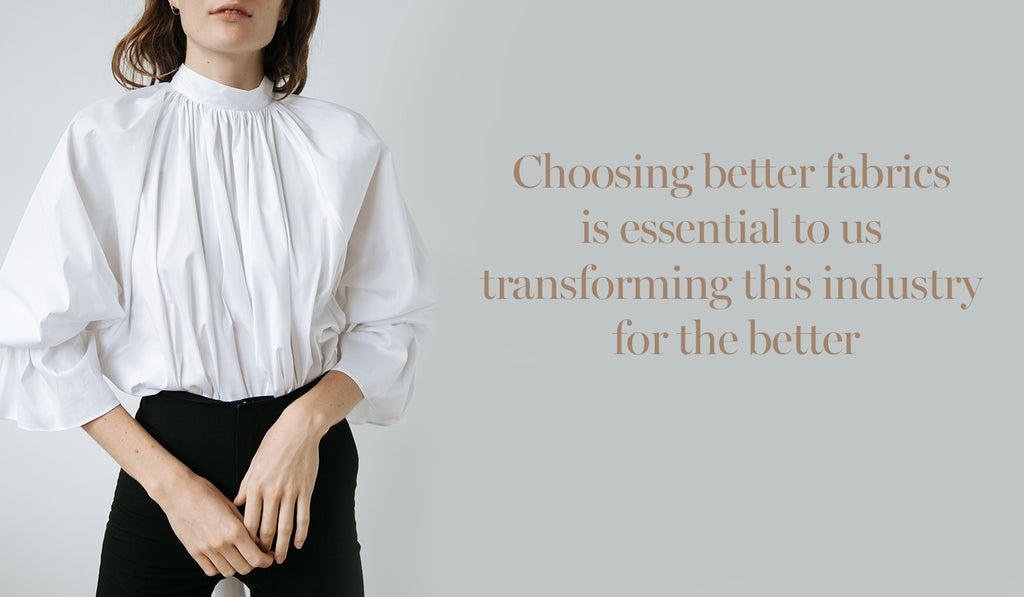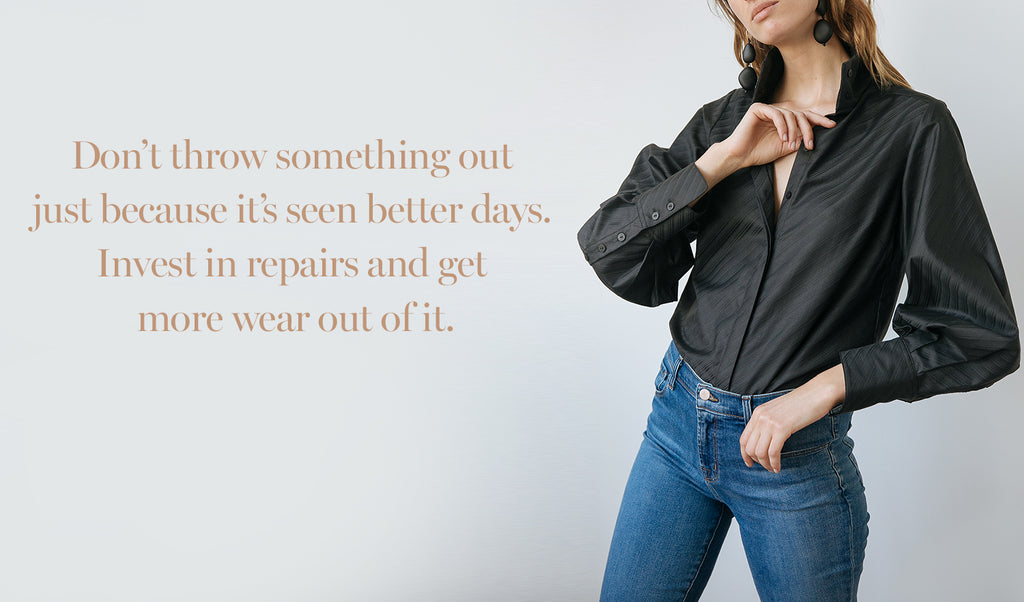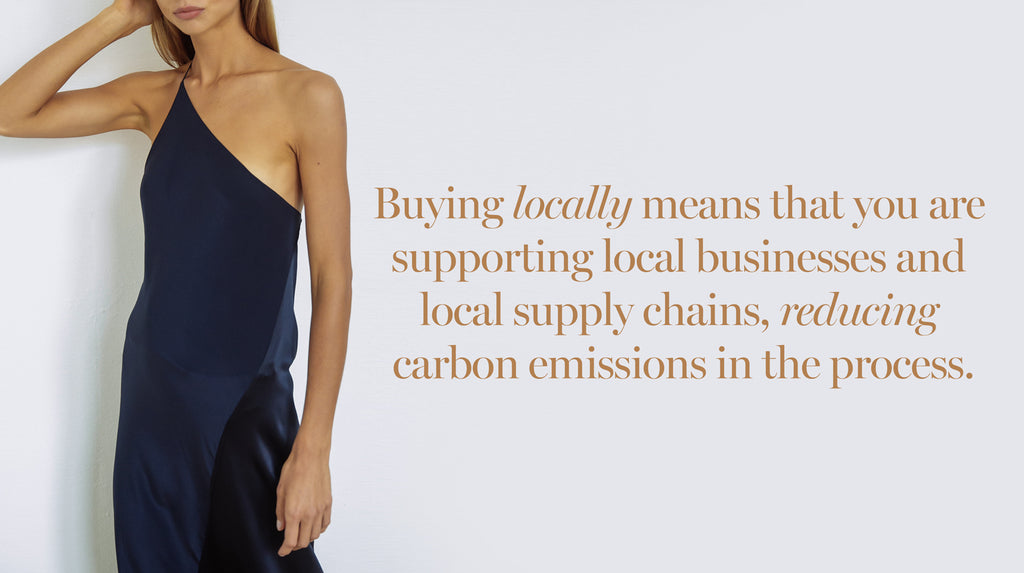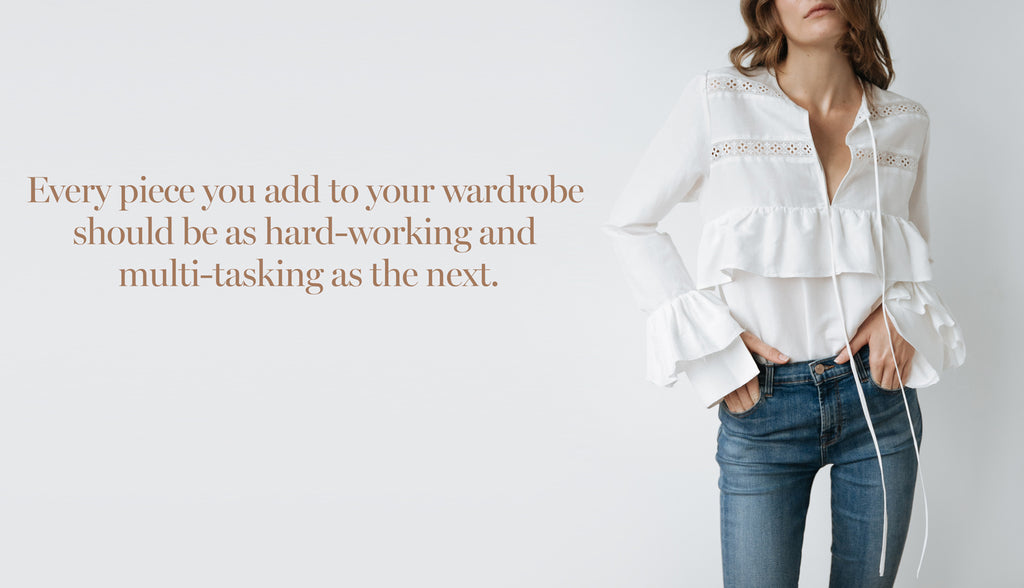Shopping ethically is one of the most important things you can do when it comes to your closet this year. This is how to make sure you’re doing right by the environment when it comes to your clothes.
Written by Hannah-Rose Yee
Here are some sobering statistics: Australia has the second largest clothing shoppers in the world, purchasing an average of 27 kilograms each a year. Almost two million of us are buying a new pair of jeans every month. On top of that, we’re sending 500,000 tonnes of leather and fabric to landfills.
This kind of waste is not only detrimental to the environment but it feeds a cycle of fast fashion obsession that, in turn, engenders unethical working conditions for textile labourers. Put simply, our current rate of fashion consumption isn’t sustainable.
By making a few small changes to the way you shop, wear and care for your clothes, you can have a huge impact.
1. Pay attention to fabrics
To paraphrase George Orwell’s 1984: “Polyester bad, linen good.”
Basically, polyester, acrylic and other manmade, plastic-based fabrics are what you need to steer clear of. Not only are they toxic to produce, but if and when they end up in a landfill they take up to 200 years to decompose.
“Choosing better fabrics is essential to us transforming this industry for the better,” sustainability strategist Clara Vuletich told The Guardian.
Natural, low-impact fibres like silk, hemp, organic cotton, linen and wool are your friends, though pay attention to whether they are ethically certified and organic. Similarly, polyesters derived from existing plastic waste – like recycled plastic bottles, for example – are contributing to the use and reuse nature of recycling, and should be encouraged.
2. Pick up a sewing needle
Ever had the button fall off your favourite blazer or torn the sleeves of a beloved shirt? Rather than throwing the item out immediately, think about repairing it. If you’re handy with a sewing needle, and the mend is pretty simple, give it a go yourself. Otherwise, look up an alterations service near you that can help restore your beloved item to near-brand new condition.
This goes for shoes, handbags and belts, too. Leather workers will be able to re-sole your worn-in leather slides or stitch-up a broken strap. Don’t throw something out just because it’s seen better days. Invest in repairs and get more wear out of it.
3. Buy locally
The locavore movement’s principles are the same, whether in the food or the fashion industry. Buying locally means that you are supporting local businesses and local supply chains, reducing carbon emissions in the process.
At The UNDONE, majority of our brands are proudly
made in Australia. We particular love our jewellery designers,
Holly Ryan, surō,
Natasha Schweitzer and
By Nye who all design and make their jewellery by hand. Holly Ryan in particular offers a credit for her pieces that are going unworn, offering to melt them down to then make a new piece, genius.
4. Embrace the capsule wardrobe mentality
Streamlining your closet isn’t just about an aesthetic. It’s also a keen way to make your wardrobe more sustainable. By understanding and planning your outfits you are less likely to make impulse purchases or contribute to the fast fashion cycle, and you’re more likely to start consuming more consciously.
Once you have your core capsule wardrobe of pieces you wear and re-wear, the ethical value of your closet goes up. There should be no reason to buy things simply because they’re cheap, only for them to sit in the back of your wardrobe, unworn, season after season. Every piece you add to your wardrobe should be as hard-working and multi-tasking as the next.
5. Shop online
According to a 2017 study by Chalmers University of Technology almost a quarter of a garment’s carbon footprint comes from shoppers driving to the store to browse, try and buy. Shopping online eliminates at least some of that impact.
And though some online stores will undo a lot of their ethical brownie points by packaging their items in swathes and swathes of plastic, at The UNDONE your purchases will arrive in recyclable tissue paper and cardboard boxes.
To further aid in the online shopping process, you can download a browser extension like
Impakt or
DoneGood to give you more information as to whether or not you’re purchasing from a sustainable brand. If you’re not, they’ll even give you some alternatives for brands with similar items to look out for instead. When it’s this easy to get it right, there’s really no excuse for shopping unethically.












